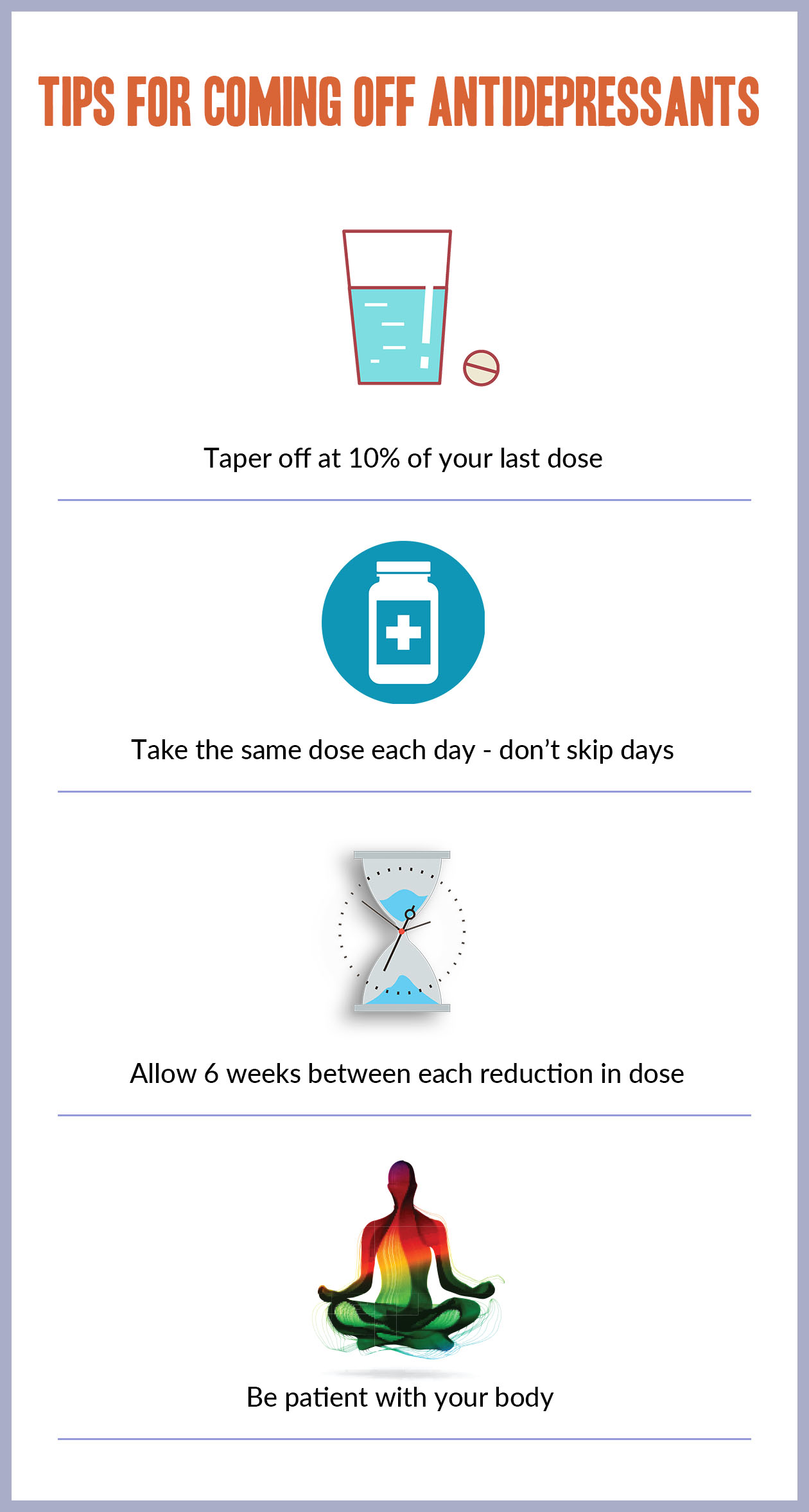
How To Successfully Stop Antidepressants
If you’re wondering how to come off antidepressants safely, you may be looking to your local doctor for guidance. Seeing your GP will certainly help you to decide whether it is safe to stop taking your medications.
Once you have made that decision, there’s the question of how to do it. Many doctors recommend tapering off your medication over a period of months or even weeks in some cases.
However, some people find this approach to be too harsh, and coming off their medication too quickly leaves them with frightening and often debilitating symptoms of Antidepressant Discontinuation Syndrome.
On the other hand, many people have no diffuculty at all with this recommended time frame. There’s no telling whether or not you will be one of the unlucky few who develop symptoms of withdrawal until you try to reduce your medication. According to the website ‘Surviving Antidepressants’ it’s best to err on the side of caution. Here are some tips from their website that may help you:
ONE: Simplify The Process
When you start reducing your medication, it’s important to only change the dosage of one medication at a time. For example, if you’re taking an antidepressant along with a benzodiazepine medication, don’t try to change or reduce both medications at the same time.
The same goes for supplements. Many people assume that because supplements are ‘natural’, that they cannot possibly cause any harm; but if your body has a negative reaction while you are reducing your medication and then you add or change a supplement at the same time, it will be impossible to know what actually caused the problem.
By keeping it simple you minimize compounding factors. If you’re taking a supplement that contains a mix of ingredients it’s better to just take one ingredient and see how you react to that first before adding others.
TWO: Slow It Down
The Surviving antidepressant website recommends a 10% reduction of your dosage every 4-6 weeks, based on your last dosage. The slower the taper, the less likely you will be to experience withdrawal symptoms.
On the other hand, if you reduce your medication by too much you may get a very bad reaction, and once your central nervous system is destabilised it may take you some time (months and sometimes years) to restabilise.
For best results you should choose a dosage and stick to it. When you make a reduction you can sometimes experience negative side effects. Unless your reaction to the change in dosage is severe, give the change at least 7 days to settle. Even with small cuts, symptoms can arise. The idea is to stabilise before making the next cut, no matter how long that takes.
THREE: Be Patient With your Body
Psychiatric medications make changes to your body that affect not only your brain, but your entire nervous system. The whole process is incredibly delicate and complicated. For this reason, changing medication doses can affect your balance, your sleep, your body temperature and your digestive system (to name a few things).
Your nervous system needs stability, and when you take psychiatric medications over time, your body can develop a physiological dependency on that medication.
You can make things go smoothly by not skipping doses, tapering very slowly and leaving plenty of times between dose reductions. Most importantly, never suddenly stop taking your medication. If you would like more information on how to come off antidepressants safely, visit this website. And take care!


